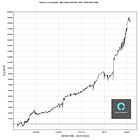Guide to Becoming a Quantitative Trading Systems Developer
Looking at the map to becoming a Quantitative Trading Systems Developer
*Ok, I warn you that this section will not give you anything, I write it exclusively for SEO positioning and I don't even know if it works.
I don't waste much time on this, if you want more garbage you can find all you want on the Internet. Perhaps you are new in this town, or maybe you got lost...
In any case, I hope you are here for the code and not for western movies.
Guide to Becoming a Quantitative Trading Systems Developer
Becoming a quantitative developer is an exciting career path that blends a passion for technology and finance. Here is an extensive plan for those looking to excel in this dynamic field.
1. Mastery in Programming and Mathematics
A quantitative developer must have an in-depth knowledge of:
Advanced programming languages: Delve into Python, C++, Java, or R, focusing on complex algorithms, advanced data structures, and programming paradigms such as functional and concurrent programming.
Applied mathematics: Master multivariable calculus, inferential statistics, numerical analysis, and mathematical modeling to apply these techniques in solving complex financial problems.
2. Specialization in Financial Mathematics
Mathematics is critical in quantitative development. One should delve into:
Stochastic and financial models: Understand and apply models like Black-Scholes, Monte Carlo, and other asset valuation models.
Advanced probability theory: Apply probability concepts to model risks and uncertainties in financial markets.
3. Expertise in Financial Markets
A quantitative developer needs a comprehensive understanding of:
Advanced market analysis: Study market dynamics, portfolio theory, and risk management to understand how to maximize returns and minimize losses.
Complex financial instruments: Gain in-depth knowledge of derivatives, futures, options, and other exotic instruments to develop advanced trading strategies.
4. Depth in Financial Analysis
For effective financial analysis, it is crucial to:
Advanced investment evaluation: Use valuation techniques, sensitivity analysis, and predictive modeling to assess investment opportunities.
Economic and sectoral analysis: Study how different sectors and economic cycles impact financial markets.
5. Practical Project Implementation
Theory is solidified through practice by:
Developing trading systems: Create and test automated trading systems in simulated environments before applying them in the real market.
Real-time data analysis: Work with financial data streams to develop strategies that respond to live market conditions.
6. Connecting with the Quantitative Development Community
Strengthen your career through community:
Active participation in forums and networks: Collaborate with other quantitative developers to exchange ideas and strategies.
Continuing education and specialization: Stay up-to-date with the latest trends, tools, and techniques in the quantitative field.
7. Preparing for the Professional Career
Finally, preparing for the job market involves:
Developing professional competencies: Enhance presentation, negotiation, and project management skills to lead teams and quantitative projects.
Understanding legal and ethical aspects: Ensure comprehensive knowledge of regulations and ethics in quantitative trading to operate within legal frameworks.
Invent the wheel or make it spin.
Although the path to becoming a quantitative developer is complex and requires a significant investment of time and effort, there are ways to streamline this process.
Correctly developing a trading system is something that is really time-consuming, especially if you do not have the necessary experience and knowledge. Gathering this knowledge to properly develop a system will take you years, no less than being a doctor or engineer.
However, if instead of developing systems from scratch, you find an experienced provider can greatly simplify the process. Managing trading systems is a complex task, but developing them is even more complex.
Proven and optimized quantitative trading systems that can save time, reduce costs and increase efficiency, allowing you to focus on strategic decision making rather than system building and testing. You are buying time.
With this approach, you will be able to accelerate your entry into the quantitative world and start seeing results more quickly, leveraging the expertise of others and their advanced solutions. Plus, you'll learn much more by watching code from a professional than trying to reinvent the wheel yourself.
Do you need tradsing systems? Shoot
….








